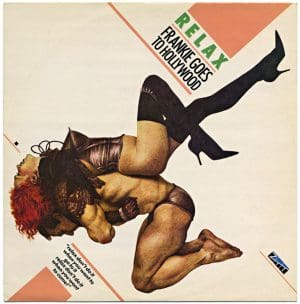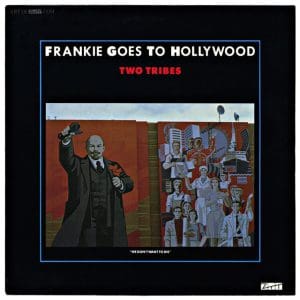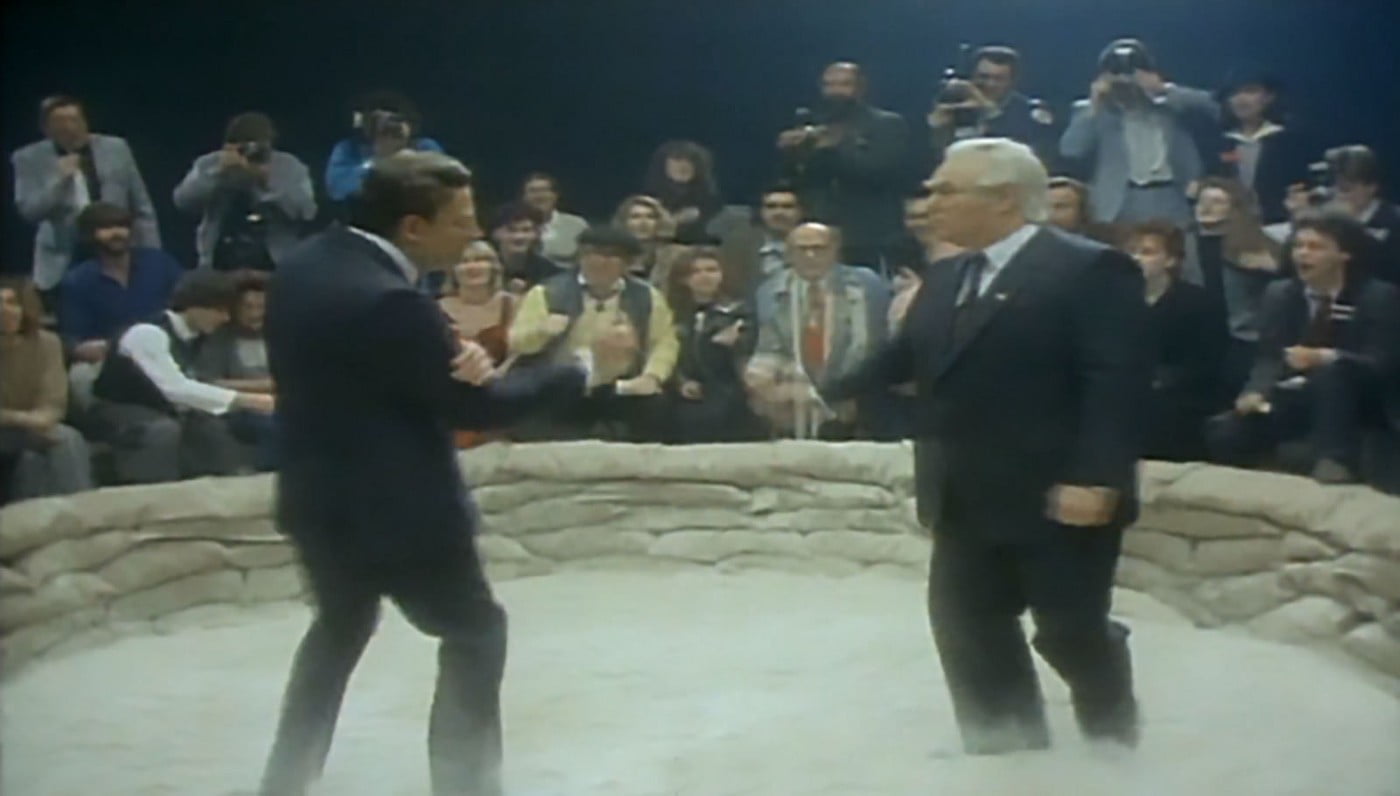 If there’s ever a doubt that music can change the world, just look at the mid-80s for proof. There was Band Aid and Live Aid, of course, but before that there was Frankie Goes to Hollywood, bringing homosexuality to the fore with Relax and ushering out the Cold War with Two Tribes. In this interview from 2017 we caught up with the producer behind the power, Trevor Horn… By Andy Jones
If there’s ever a doubt that music can change the world, just look at the mid-80s for proof. There was Band Aid and Live Aid, of course, but before that there was Frankie Goes to Hollywood, bringing homosexuality to the fore with Relax and ushering out the Cold War with Two Tribes. In this interview from 2017 we caught up with the producer behind the power, Trevor Horn… By Andy Jones
To say that Frankie Goes to Hollywood’s success in the 80s was down to sheer luck would be unfair, however several stars did align quite beautifully.
In lead singles Relax and Two Tribes, the group smashed the sexual and political innocence of the time – confronting Britain with both homosexuality and highlighting the stupidity of the Cold War, taking its youth by the scruff of the neck and screaming ‘grow some balls’.
We’d like to think that we would have eventually matured as a society at some point, and grown to embrace homosexuality as we hope we have today, but Relax sped up the process. It put it out there like never before, the BBC didn’t like it, and suddenly there was a lot of growing up to do.
That single sold a couple of million and bounced around the charts for a year. The follow-up, Two Tribes, was its only equal.
The video, the production, that terrifying voice-over – a nuclear air attack warning that would basically be the last thing we heard before being nuked to hell… Well at least death would be soundtracked by that throbbing bassline.
Holly Johnson’s lyrics, the driving bass written by Mark O’Toole, Paul Morley’s aggressive ad campaigns (“all the nice boys love sea men”), and, of course, the slick production, made for a seminal hit.
As the man behind the Frankie sound, Trevor Horn must be tired of being asked about it nearly 35 years on.
Indeed, it’s almost as terrifying listening back to that advice about wrapping your nan’s corpse in plastic before throwing her out of the nuclear shelter as it is asking him if the Frankies really didn’t play a note on Relax, as the infamous story goes.
But after a couple of weary sighs, Horn becomes more animated the more we speak. Relaxed, even. He understands the society-kicking, history-altering statements of Relax and Two Tribes may never be repeated, and really those productions defined both his sound and life.
Would he have gone on to produce everyone from Pet Shop Boys to Robbie Williams without Relax?
Actually, probably yes (he’d already done ABC’s The Lexicon Of Love by this point) but he clearly has learned to appreciate them – or at least put up with being asked about them – and provides a fascinating insight into the recording of those main two era-defining tracks and the resulting album Welcome To The Pleasuredome (now reissued again as a deluxe edition on BMG). One more time Trevor…
“Well, the first time I heard Frankie I was in the recording studio with Yes – we were all eating dinner and watching The Tube,” he recalls. “They had all those girls chained up and [some band members] were overtly gay, which was a bit of a new thing [for TV].
“I always remember, I watched it and [Yes bassist] Chris Squire suggested I signed them. I didn’t think that much more about it but a few days later I was driving home and listening to ‘Kid’ Jenson and he played them again, the demo of Relax. I thought ‘fuck me, this is a hit’.”
“They interviewed Holly [Johnson] and Paul [Rutherford] on the BBC or something,” Horn continues, “and they explained they were after a deal so I went into ZTT and said to my late wife [Jill Sinclair, co-founder of ZTT] that: ‘we’ve got to sign Frankie Goes To Hollywood even if we have to pay a lot of money for them because I think [Relax is] a hit’.
“We found out that not many of the major labels were interested, and if you saw the promo pictures that they had taken, you’d know why. For that time, they were pretty shocking and that had put a lot of people off. And then I met the band. I always remember that Holly wasn’t really sure who I was.
“He thought I produced My Camera Never Lies by Bucks Fizz which, believe me, had I produced it I would have been quite proud of! But when I met the lads, I liked them and thought they were funny.
“You had to be around them to realise just how funny they were, particularly Nasher [Brian Nash, guitarist] – Nasher and Ped, (drummer Peter Gill) were like a double act.
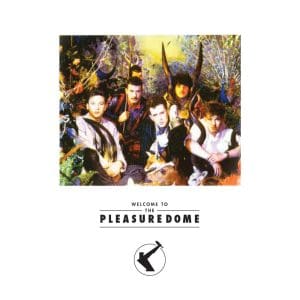
“But as time went on Nasher became a really good guitarist. At the start, though, everyone was really green.”
However, what the band lacked in skill, they made up for in terms of their vision and had a direction in mind that Horn embraced completely.
“Mark [O’Toole, writer and bassist] and Ped said that they wanted to sound like a combination of Donna Summer meets Kiss,” he says.
“What they were talking about was a programmed track, a track with sequencers, but also with a rock element to it and I was really interested in that idea. I had no idea how to realise it when I started on it, but it sounded like a good goal.”

“We just took that and did exactly what they said and put the Donna Summer element into it, and at the time we had all of the latest gear [in the studio].
“I knew that Holly and Paul really liked dance music and I had something I was working on in the Linn and the Fairlight [cutting edge studio gear of the time] which was this piano sequence and knew we were going to use it for something because it was so good.
“Holly heard it and said: ‘oh I like that’. I thought they would like it, so when I eventually redid it [Relax] they did, the band really liked it. Even though they didn’t play on it, it was all their ideas. It was all Mark – Mark was a good writer. All the key basslines on Two Tribes and Welcome To The Pleasuredome, are all down to him.”
Time for takeoff
With Relax completely reworked and about to launch, ZTT was ready to recoup some of the studio money it had spent on the recording. But this was one rocket with a very long fuse…
“I went off to the States to work with Foreigner,” Trevor recalls. “The record came out and it wasn’t an instant hit. It took a lot of effort to keep it going – no one seemed very interested and it got lousy reviews.
“Eventually it dropped one week from No.52 to No.53, which is a disaster, because the minute you drop you very rarely get a second chance. We called up Malcolm Gerrie at The Tube and said: ‘can you put Frankie on the show next week?’ and [it was] one time in 30-odd years when someone actually helped us like that, he put them on, and we then went from No.53 to No.32 or something.
“Getting there got them on Top Of The Pops. I will always remember how, when the Top Of The Pops people phoned up to offer them the slot, they said: ‘they [FGTH] have to behave themselves!’
“I thought how good it was that they were a bit afraid of them… that’s a good sign! When the band went on the show they were terrific. It just went off like a rocket.”
The track hit the Top 10 but by now the BBC – and, in particular, DJ Mike Read – had caught a whiff of what the song was about and banned it. Relax climbed to the No.1 spot and remained there for the next five weeks. Morley must have been ecstatic, but Horn was stuck. He was still in the States with Foreigner, so had to choose between the two projects.
“I realised that I had to leave Foreigner and concentrate on Frankie otherwise there wouldn’t be a second single,” he says.
“So, much to my late wife’s chagrin as she was managing me at the time, I bailed on the Foreigner project and gave them all the advance back.”
But how to follow Relax? Initially, Horn considered releasing a Frankie version of Slave To The Rhythm, which Bruce Woolley had just written.
“I really liked it, loved the title, and Holly had a go at singing it, but it didn’t sound right,” Horn recalls.
They returned to the original Frankie demos and decided to try to do something with Two Tribes.
“The way that they did Two Tribes started off slow and then sped up and did crazy shit, so we basically got them to play it and then programmed the drum track.
“Mark had the bass part which was always exactly the same as he’d written it, but we programmed that on a synth. Steve [Lipson] came up with the guitar line. The guitar part on Two Tribes is absolutely brilliant in its simplicity.”
Massive attack
Trevor worked on Two Tribes for months, at one time completely scrapping the song and starting again.
“The problem was that it was relatively easy to program a synthesiser and it was also relatively easy to programme a sample but I wanted something that sounded really good. Relax was just so successful that I was worried we wouldn’t be able to follow it.
“I didn’t really know that I had Two Tribes finished until we did the 12-inches. You know the ‘grandmother or anybody in your shelter’ thing.”
Horn is talking about the iconic speech mimicking the Protect and Survive broadcast that was not only terrifying but made the track one of the best 12-inches of all time.
“Yeah, and once we had that, we knew,” he agrees. “We were doing a few things that no-one has really done since like we’d get an actor in to say stuff and use it. We were making Two Tribes at Sarm West and I would bump into Paul Morley on the stairs – a lot of the good ideas would come up with me and him talking there.
“[One time] he said: ‘I’ve got this great tape, it’s meant to be secret. If there’s a nuclear attack we get a 10-minute warning and every radio station has this tape. This is what they have got to play.’”
“So it had: ‘do not be alarmed, make your way to the shelter, when the air attack warning sounds…’ It was quite chilling. When I heard it I thought ’this could be good’, but I didn’t want to rip the guy off who originally spoke it – a big voiceover guy called Patrick Allen.
“We called him up and he said: ‘yeah I’ll do a voiceover for the record, it will cost you £1,500’ which seems like a shitload of money, right?
“But we paid it and he showed up. He had it all written out and looked at it and said: ‘Oh, you know when I did this I had to sign the Official Secrets Act so I don’t know if I can do this’.
“But then he said: ‘do you know what, fuck ’em, I’ll do it’, which I always thought was very noble of him because you never know what is going to come down around your head.
“While he was doing it he said: ‘you know there’s a bit you haven’t got and I can’t quite remember what it is’. Then he said: ‘if your grandmother or anyone else in the shelter should die whilst in the shelter, wrap their body in…’ and he just kept on doing it until he had it: ‘wrap their body in plastic and put it outside.’
“As he was doing it I was exultant, thinking: ‘this is it, that is so awful!’ And, of course, Morley had written a couple of things for him to say, one of which was: ‘mine is the last voice you will ever hear’.
“And when he recorded that he [Allen] said: ‘my god’. It took his breath away to say it because [he realised] it was kind of true.”
Riding a rocket
Two Tribes was massive and the band’s second No.1. So how important does Trevor think it was in retrospect?
“I think that Holly, in his lyrics, was so original,” he replies. “The lyrics in Two Tribes about ‘Cowboy number one’ who was Reagan: ‘A born-again poor man’s son; On the air America; I modelled shirts by Van Heusen’ which he [Reagan] used to do. ‘Working for the black gas’ [was] the oil companies you know?
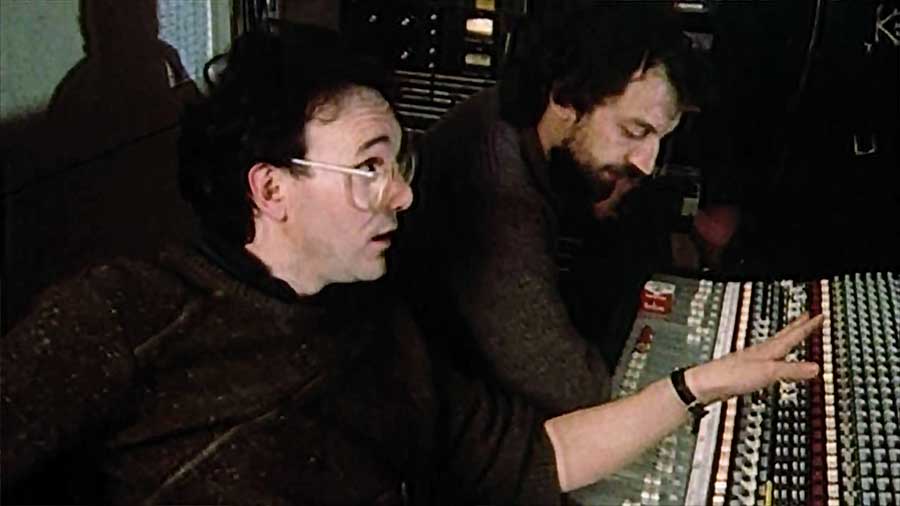
“I don’t think you can take pop records out of their context. They must have that added element where they relate to the zeitgeist of the time, the way that people were feeling.
“A lot of people were thinking that kind of thing like: ‘well what have we got against the Russians? It’s stupid, the Russians are great people, why do we want to have a fucking war with them?’”
Frankie’s third single, The Power Of Love, completed a hat-trick of UK No.1s.
“It was like riding a rocket for a year,” Trevor concludes, “and by the time the rocket took a break, after three No.1s, I think everyone was on the verge of a nervous breakdown, we’d had enough.”
But by this time they’d done enough, too. Politics, check. Sex, check. Religion, check. Frankie, Horn, Morley and ZTT changed people’s perceptions on at least two out of the three. The power of music? Check.
Photos copyright BMG
Want more from Classic Pop magazine? Get a free digital issue when you sign up to our newsletter!
Classic Pop may earn commission from the links on this page, but we only feature products we think you will enjoy.

